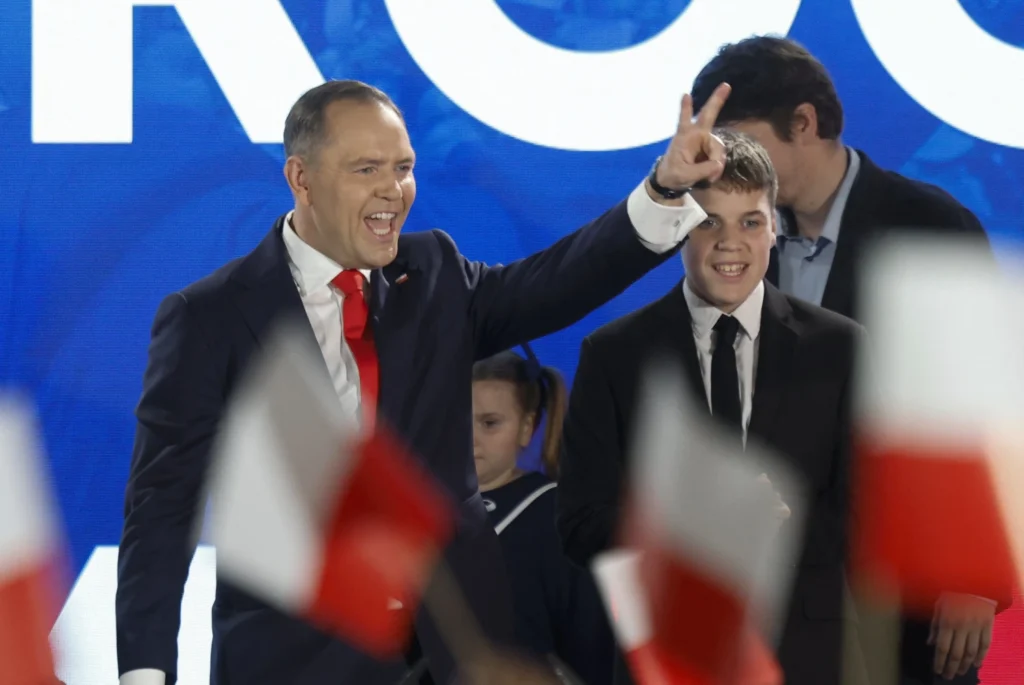Poland’s Critical Presidential Election: A Battle Between European Integration and Nationalist Sentiments
Published on June 1, 2025
The upcoming vote in Warsaw features a high-profile contest between a leading pro-EU mayor and a nationalist historian, with results poised to significantly influence Poland’s trajectory within Europe. DW provides the latest insights.

Key Highlights to Know Before Voting
- The Polish electorate is divided primarily between Warsaw’s liberal mayor Rafal Trzaskowski and nationalist candidate Karol Nawrocki.
- Recent polls indicate a tight race, with Nawrocki leading narrowly at approximately 50.1%, and Trzaskowski trailing at 49.9%.
- In the initial round held on May 18, Trzaskowski secured a slim victory, setting the stage for a highly competitive runoff.
- The outcome will have profound implications for Poland’s role within NATO and the European Union.
- The Polish presidency holds significant powers, including veto authority over legislation and command over the armed forces.
Stay updated with the latest developments and analysis on Poland’s presidential runoff on June 1, 2025.
Profiles of the Leading Candidates

Rafal Trzaskowski: The European-Liberal Challenger
Backed by the Civic Coalition led by former Prime Minister Donald Tusk, Trzaskowski has a track record as Warsaw’s mayor since 2018, with a re-election in 2024. His platform emphasizes expanding reproductive rights, defending LGBTQ+ communities, and strengthening Poland’s ties with the European Union. If victorious, he aims to advance Tusk’s reformist agenda, potentially reversing some of the conservative policies enacted in recent years.
In 2020, Trzaskowski narrowly lost his first bid for the presidency to incumbent Andrzej Duda. This time, the race is expected to be even more competitive, with polls showing a dead heat.
Karol Nawrocki: The Nationalist Incumbent
Nawrocki, a 42-year-old historian and former director of the World War II Museum in Gdansk, positions himself as a defender of traditional Polish values. He advocates for stricter immigration controls, including border measures with Germany, and promotes a nationalist agenda under the slogan “Poland First, Poles First.” Supported by the Law and Justice party, Nawrocki’s victory could bolster conservative policies and challenge Poland’s EU commitments.
His admiration for U.S. President Donald Trump and skepticism towards the European Union resonate with a segment of voters seeking a more nationalist approach to governance.
Voting Day: The Race to the Finish Line

On June 1, polling stations nationwide opened their doors for the decisive second round of voting. The initial round on May 18 saw Trzaskowski narrowly lead Nawrocki, with over 31% of votes compared to approximately 30%. Eleven other candidates were eliminated, consolidating the race between the top two contenders.
Voting concludes at 9:00 pm local time, with exit polls expected to provide early indications of the outcome. Official results are anticipated on Monday, which could reshape Poland’s political landscape.
The Stakes: Why Every Vote Counts
As Poland approaches this critical election, analysts emphasize that the result will determine whether the country continues on a path of European integration or shifts towards a more nationalist and Eurosceptic stance. The president’s veto power could either facilitate or hinder the government’s legislative agenda, especially on issues like judicial reforms, migration, and foreign policy.
DW’s Brussels bureau chief Alexandra von Nahmen explains that the election outcome will influence Poland’s relationship with the EU and NATO, potentially affecting regional stability and cooperation.
Watch: The Significance of Poland’s Presidential Race
Why Every Vote Matters in Poland’s Runoff
With polls showing the candidates neck-and-neck, each ballot cast on June 1 could tip the balance. Many voters are less focused on their preferred candidate and more on preventing the opposing candidate from winning. This election is a decisive moment for Poland’s future direction-whether it embraces deeper European integration or leans into nationalist policies.
Learn more about the critical issues at stake in Poland’s presidential race and how the outcome could influence the country’s role within the European Union and NATO.
For ongoing coverage, stay tuned to DW’s comprehensive election analysis and live updates.

